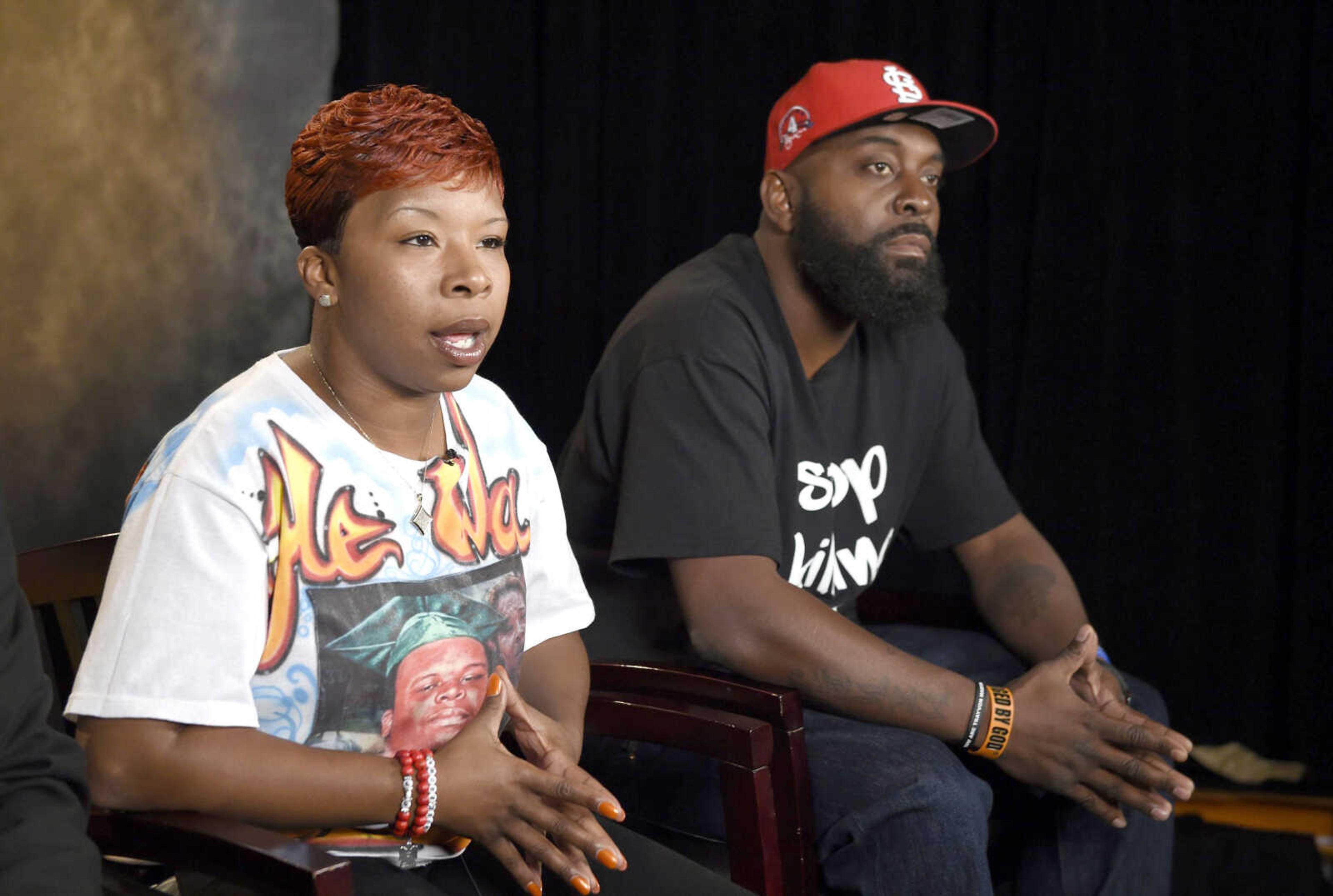Prosecutor wants photos of Michael Brown's body restricted
KANSAS CITY, Mo. -- Attorneys for the police force and prosecutor that oversaw the investigation of Michael Brown's 2014 death in Ferguson asked a federal judge to consider blocking the release of "grisly" photographs of the black 18-year-old's body to his family's attorneys, worried they could prompt violence if leaked...
KANSAS CITY, Mo. -- Attorneys for the police force and prosecutor that oversaw the investigation of Michael Brown's 2014 death in Ferguson asked a federal judge to consider blocking the release of "grisly" photographs of the black 18-year-old's body to his family's attorneys, worried they could prompt violence if leaked.
The St. Louis County counselor's office filed that request Tuesday with a federal judge presiding over the wrongful-death lawsuit filed by Brown's parents. U.S. District Judge E. Richard Webber had earlier Tuesday rejected a separate request by Brown's mother to broaden who can see sensitive grand-jury details related to her son's death.
An attorney for the county's prosecutor and police department said the photographs of Brown dead on the street, during his autopsy and in the morgue could rekindle the violence that accompanied protests of Brown's death.
"These particular grisly images evoke a visceral reaction which may provoke unbridled violence," Linda Wasserman wrote in that motion, which asked Webber to first privately vet the photographs. "The disturbing impact of the photographic images could cause the simmering cauldron of emotions associated with this matter to quickly reach the boiling point."
Wasserman added "a wrongdoer" given access to the photographs easily could make a duplicate of them "in an anonymous and clandestine fashion, making it difficult, if not impossible, to trace the illegal disclosure."
Anthony Gray, an attorney for Brown's family, declined Wednesday to discuss Wasserman's filing or concerns, saying, "I'm going to be totally deferential to the court on this one."
Webber had agreed in June to let no more than two attorneys for each of Brown's parents and for the defense see testimony and the names of witnesses from the secret St. Louis County proceedings involving Brown's death.
That grand jury declined to indict Darren Wilson, the white Ferguson police officer who shot and killed Brown, who was black and unarmed, during an August 2014 confrontation on a street.
Brown's death and the grand jury's decision led to sometimes-violent protests in Ferguson and helped propel the Black Lives Matter movement, which criticizes police treatment of minorities.
At the time of the grand jury decision, St. Louis County Prosecuting Attorney Robert McCulloch made public heavily redacted transcripts of grand jury testimony. But he didn't release the witnesses' names.
Webber's "protective order" spelling out terms of the records release marked the first time someone other than a prosecutor or grand juror will see uncensored details of the secret proceedings. The order bars the attorneys who see the grand jury items from making any of them public.
Brown's mother, Lezley McSpadden, had asked Webber to let three more of her attorneys see the grand-jury information. But attorneys for Wilson and Ferguson warned widening such access would greatly increase the risk the sensitive information makes its way online through leaks, endangering police officers who were involved in Brown's case.
"This information is highly sensitive, and in drafting the protective order, the court balanced the needs of the parties to have access to this information with the risks of inappropriate disclosure," Webber wrote.
Concerns about dissemination of autopsy photographs have surfaced before in high-profile cases, prompting court rulings over whether they are made public. In one such dispute, Florida courts rejected requests by some media outlets to get access to autopsy photos of race car driver Dale Earnhardt after his 2001 death during the Daytona 500.
Connect with the Southeast Missourian Newsroom:
For corrections to this story or other insights for the editor, click here. To submit a letter to the editor, click here. To learn about the Southeast Missourian’s AI Policy, click here.









